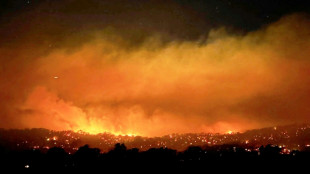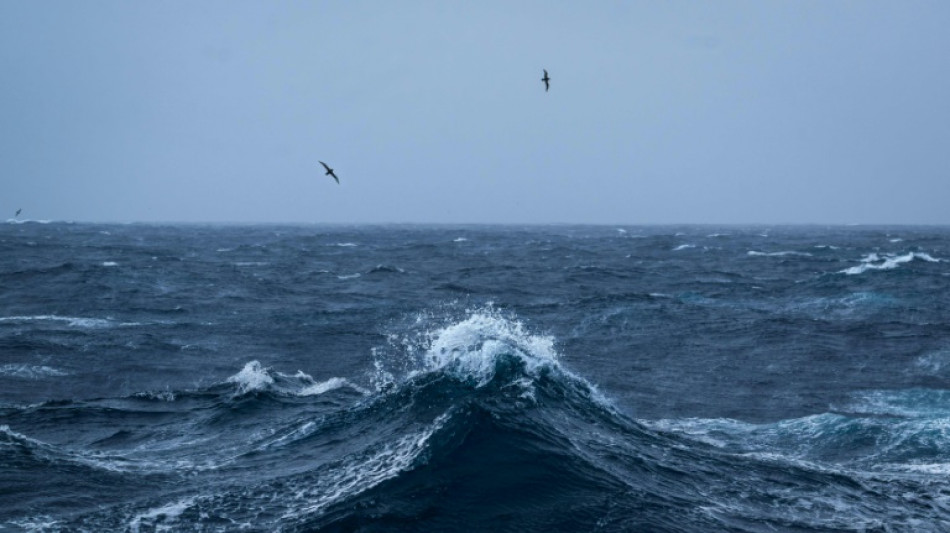
-
 Dolphins fire head coach McDaniel after four seasons
Dolphins fire head coach McDaniel after four seasons
-
Three ships head to US with Venezuela oil as capacity concerns grow
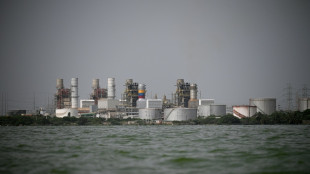
-
 Trump says US could run Venezuela and its oil for years
Trump says US could run Venezuela and its oil for years
-
Heavy wind, rain, snow to batter Europe
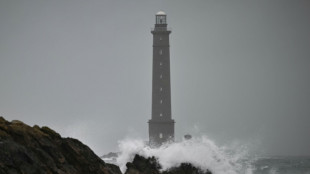
-
 Morocco coach Regragui aims to shift pressure to Cameroon before AFCON clash
Morocco coach Regragui aims to shift pressure to Cameroon before AFCON clash
-
HRW warns right to protest 'under attack' in UK

-
 French farmers rage against EU-Mercosur trade deal
French farmers rage against EU-Mercosur trade deal
-
Humanoid robots go for knockout in high-tech Vegas fight night

-
 Brazil's Lula vetoes law reducing Bolsonaro's sentence
Brazil's Lula vetoes law reducing Bolsonaro's sentence
-
Macron accuses US of 'turning away' from allies, breaking rules

-
 Joshua pays tribute to close friends killed in crash
Joshua pays tribute to close friends killed in crash
-
Protesters, US law enforcement clash after immigration officer kills woman

-
 French ex-spy chief cops suspended jail term for 15 mn euro shakedown
French ex-spy chief cops suspended jail term for 15 mn euro shakedown
-
Syria bombs Kurdish areas in city of Aleppo

-
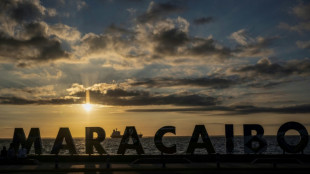 Confusion reigns over Venezuela's oil industry as US looms
Confusion reigns over Venezuela's oil industry as US looms
-
Stocks retrench as traders eye geopolitics, US jobs data

-
 US trade gap shrinks to smallest since 2009 as imports fall
US trade gap shrinks to smallest since 2009 as imports fall
-
Russia releases French researcher in prisoner exchange
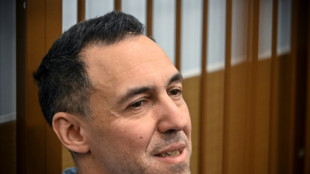
-
 Spain signs agreement with Church to compensate abuse victims
Spain signs agreement with Church to compensate abuse victims
-
Macron accuses US of 'breaking free from international rules'

-
 US could run Venezuela, tap its oil for years, Trump says
US could run Venezuela, tap its oil for years, Trump says
-
England to stick with Stokes and McCullum despite Ashes flop

-
 Nobel laureate Bialiatski tells AFP 'important' to keep pressure on Belarus
Nobel laureate Bialiatski tells AFP 'important' to keep pressure on Belarus
-
Russia slams Western peacekeeping plan for Ukraine

-
 Bordeaux's Du Preez wary of Northampton's Champions Cup revenge mission
Bordeaux's Du Preez wary of Northampton's Champions Cup revenge mission
-
Romero apologises for Spurs slump as crisis deepens

-
 Former Premier League referee Coote gets suspended sentence for indecent image
Former Premier League referee Coote gets suspended sentence for indecent image
-
New clashes hit Iran as opposition urges protests, strikes

-
 Stocks retreat as traders eye geopolitics, US jobs data
Stocks retreat as traders eye geopolitics, US jobs data
-
'Girl with a Pearl Earring' to be shown in Japan, in rare trip abroad

-
 Syria tells civilians to leave Aleppo's Kurdish areas
Syria tells civilians to leave Aleppo's Kurdish areas
-
'Sign of life': defence boom lifts German factory orders

-
 Japan's Fast Retailing raises profit forecast after China growth
Japan's Fast Retailing raises profit forecast after China growth
-
Olympic champion Zheng out of Australian Open

-
 England's Brook 'deeply sorry' for nightclub fracas
England's Brook 'deeply sorry' for nightclub fracas
-
New clashes in Iran as opposition urges more protests

-
 Equity markets mostly down as traders eye US jobs data
Equity markets mostly down as traders eye US jobs data
-
England cricket board launches immediate review into Ashes debacle

-
 Dancing isn't enough: industry pushes for practical robots
Dancing isn't enough: industry pushes for practical robots
-
Asian markets mostly down as traders eye US jobs data

-
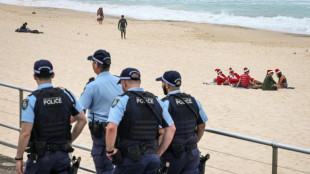 Australia to hold royal commission inquiry into Bondi Beach shooting
Australia to hold royal commission inquiry into Bondi Beach shooting
-
Sabalenka accuses tour chiefs over 'insane' tennis schedule

-
 Cambodia to liquidate bank founded by accused scam boss
Cambodia to liquidate bank founded by accused scam boss
-
Farmers enter Paris on tractors in protest at trade deal

-
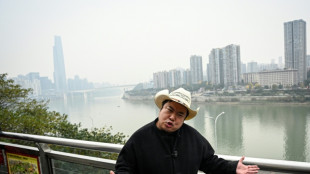 Viral 'Chinese Trump' wins laughs on both sides of Pacific
Viral 'Chinese Trump' wins laughs on both sides of Pacific
-
Stokes vows to stay on but 'wrongs to put right' after crushing Ashes defeat

-
 Lidl to drop broadcast TV ads in France
Lidl to drop broadcast TV ads in France
-
Stokes admits 'wrongs to put right' after crushing Ashes defeat

-
 Sabalenka impresses again in Australian Open warm-up, vows more to come
Sabalenka impresses again in Australian Open warm-up, vows more to come
-
Gilgeous-Alexander to the rescue as Thunder sink Jazz in overtime

| SCS | 0.12% | 16.14 | $ | |
| RBGPF | -0.27% | 81.57 | $ | |
| CMSC | -0.09% | 22.98 | $ | |
| NGG | 0.04% | 79.42 | $ | |
| CMSD | 0.17% | 23.64 | $ | |
| AZN | -0.57% | 94.625 | $ | |
| GSK | -0.47% | 50.385 | $ | |
| RYCEF | 0.29% | 17.05 | $ | |
| BTI | 0.79% | 53.715 | $ | |
| BCC | 6.28% | 78.394 | $ | |
| RELX | 0.68% | 42.47 | $ | |
| RIO | -1.28% | 83.81 | $ | |
| BCE | 1.85% | 23.77 | $ | |
| JRI | 0.66% | 13.73 | $ | |
| VOD | -1.05% | 13.83 | $ | |
| BP | 0.09% | 33.7 | $ |

New treaty plots conservation course for high seas
Protecting life in the vast expanse of ocean beyond national jurisdictions finally has an international roadmap after UN states agreed a landmark high seas treaty at the weekend.
More than a decade in the making, the first international treaty on the high seas aims to promote the conservation and sustainable use of marine biodiversity in international waters -- a vast expanse that covers almost half the planet.
It is seen as essential to conserving 30 percent of the world's land and ocean by 2030, as agreed by world governments in a historic accord signed in Montreal in December.
Ocean ecosystems create half the oxygen humans breathe and limit global warming by absorbing much of the carbon dioxide emitted by human activities.
But only about one percent of the high seas are currently protected.
"What happens on the high seas will no longer be 'out of sight, out of mind'," said Jessica Battle, Senior Global Ocean Governance and Policy Expert, who led WWF's team at the negotiations.
"The High Seas Treaty will allow for the kind of oversight and integration we need if we want the ocean to keep providing the social, economic and environmental benefits humanity currently enjoys."
The text, which has now been published, will be formally adopted at a later date once it has been vetted by lawyers and translated into the United Nations' six official languages.
Here are some key points:
- Ocean at threat -
The treaty begins by recognising "the need to address, in a coherent and cooperative manner, biodiversity loss and degradation of ecosystems of the ocean, due to, in particular, climate change impacts on marine ecosystems".
These impacts include the warming of ocean waters -- the world's seas have absorbed more than 90 percent of the excess heat caused by burning fossil fuels -- along with loss of oxygen, acidification, plastics and other pollutants and overfishing.
The text specifies that it will apply to ocean beyond countries' exclusive economic zones (EEZ), which extend to a maximum of 200 nautical miles (370 km) from the coasts.
It also covers what is known as "the Area", shorthand for seabed and subsoil beyond the limits of national jurisdiction. The Area comprises just over half the planet's seabed.
In principle these measures apply to fishing and mining, although the treaty's decision-making body -- the Conference of the Parties (COP) -- will have to navigate the authority of other regional and global organisations.
Chief among these are regional fisheries bodies and the International Seabed Authority, which currently oversees permits for deep sea mining exploration in some areas and may soon make the controversial move of allowing companies to begin mining.
The treaty will take effect once ratified by 60 countries.
- Marine protections -
Currently almost all protected marine areas are within national territorial waters.
The treaty, however, allows for these to be extended to the open ocean to create sanctuaries, particularly in areas that are fragile, unique or crucial for endangered species.
Most decisions would be taken by consensus, but a marine protected area can be voted into existence with a three-quarters majority, avoiding a situation where one country or small group of nations can block a decision.
One crucial shortcoming: the text does not say how these conservation measures will be monitored and enforced over remote swathes of ocean. Some experts say satellites can be used to spot infractions.
- Sharing the bounty? -
In the high seas, countries and entities under their jurisdiction will be allowed to collect animal, vegetable or microbial matter whose genetic material might prove useful, even commercially.
Scientists, for example, have discovered molecules with the potential to treat cancer or other diseases in microbes scooped up in sediment, or produced by sponges or marine molluscs.
Benefits sharing has been a key bone of contention between wealthy and poorer nations.
The treaty calls for the transfer of marine technologies to developing countries and a strengthening of their research capacities, as well as open access data.
But it left the COP to decide on exactly how any monetary benefits will eventually be shared, with options including a system based on specific details about commercialised products, or more generalised payment systems.
- Assessing impacts -
The treaty requires signatories to assess the environmental impacts of planned activities under their control in the high seas before they are authorised.
It also calls for countries to assess the potential impact on international waters of activities within national jurisdictions that may cause "substantial pollution" or harm the marine environment.
The treaty allows for this to be done under a nation's own environmental assessment protocols, but says this must be published and that the COP's scientific body may "provide comments" on the process.
Ultimately states are responsible for giving the green light to any potentially harmful activity.
Ch.Kahalev--AMWN
